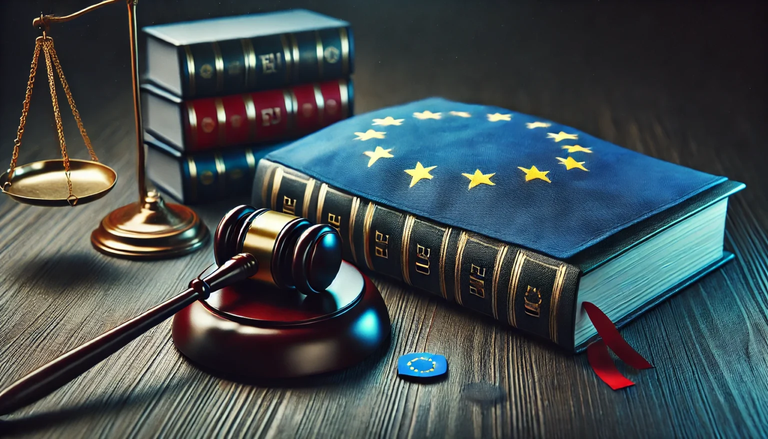Europe Rallies Global Experts to Shape AI Governance with New Code of Practice
KEY FACT: The European Artificial Intelligence (AI) Office has initiated the development of the first General-Purpose AI Code of Practice, which builds on the recently passed EU AI Act. This project is led by 13 global AI experts, including Turing Award-winner Yoshua Bengio, bringing together nearly 1,000 experts worldwide. The project aims to create guidelines addressing key AI concerns like transparency, copyright, and risk management. The Code, expected by April 2025, will impact companies deploying AI in Europe.

Image Source
Europe Rallies Global Experts to Shape AI Governance with New Code of Practice
The European Union (EU) through the European Artificial Intelligence (AI) Office has initiated the development of the first General-Purpose AI Code of Practice. The project is aimed at regulating artificial intelligence (AI) while promoting innovation. The EU announced the development of its first General-Purpose AI Code of Practice on 30 September 2024, which complements the recently passed EU AI Act. The initiative is led by 13 international AI experts, including Yoshua Bengio, a recipient of the prestigious Turing Award. Nearly 1000 attendees took part in the online kick-off Plenary to help develop the Code of Practice for Generative AI.
The European Artificial Intelligence (AI) Office kicked off the process for drawing-up of the first Code of Practice for general-purpose AI models, under the AI Act. Nearly 1,000 attendees including general-purpose AI model providers, downstream providers, industry, civil society, academia, and independent experts, took part in the online Plenary to help develop the Code of Practice. The meeting had a working character and therefore was open only to eligible stakeholders who signed up via the EU Survey by 25 August 2024 - Source
This expert group will focus on addressing critical AI challenges such as risk management, transparency, safety, and copyright protection. It is safe to say that the Code of Practice is part of the EU’s broader strategy to ensure the safe deployment of AI across various sectors while fostering innovation. It is expected to provide clear guidelines for companies deploying AI technologies in Europe. This is particularly important in sectors like healthcare, finance, and public services, where AI is increasingly being used.
The European Commission has been working actively to establish a comprehensive AI regulatory framework, to address AI's potential societal and economic impacts. The guidelines will also address intellectual property concerns, ensuring that AI-generated content respects existing copyright laws. Moreover, risk management protocols will be implemented to ensure that AI systems operate safely and do not pose undue risks to users.
The EU’s AI Act, that was passed earlier this year, provides the legal foundation for this new Code of Practice. The Act categorizes AI systems based on their level of risk and imposes stricter regulations on high-risk systems, such as those used in critical infrastructure or law enforcement. However, the Code of Practice will go further by offering more detailed, practical guidance for companies. It will be voluntary for companies initially, but the EU aims to establish it as a global standard for AI governance.
The Plenary held yesterday focused on outlining the working groups, timelines, and the expected outcomes, including the initial insights of a multi-stakeholder consultation with almost 430 submissions. The final version of the Code of Practice will be published and presented in a closing plenary, expected in April 2025. At that point, the EU will begin implementing the new guidelines. While the Code of Practice will initially apply to European companies, the EU hopes that it will serve as a model for other countries and regions looking to regulate AI.
Yoshua Bengio, one of the experts leading this initiative, emphasized the importance of balancing innovation with safety. He noted that while AI has the potential to revolutionize industries, it also presents significant ethical and safety challenges that must be addressed proactively. Bengio and his team are working to ensure that the Code reflects the latest developments in AI technology while remaining flexible enough to adapt to future advancements.
The EU’s General-Purpose AI Code of Practice is a crucial step towards responsible AI governance. As the EU works to finalize the Code by 2025, it is poised to become a global leader in AI regulation, setting a high standard for other regions to follow.

If you found the article interesting or helpful, please hit the upvote button, and share for visibility to other hive friends to see. More importantly, drop a comment below. Thank you!
This post was created via INLEO, What is INLEO?
INLEO's mission is to build a sustainable creator economy that is centered around digital ownership, tokenization, and communities. It's Built on Hive, with linkages to BSC, ETH, and Polygon blockchains. The flagship application: Inleo.io allows users and creators to engage & share micro and long-form content on the Hive blockchain while earning cryptocurrency rewards.
Let's Connect
Hive: inleo.io/profile/uyobong/blog
Twitter: https://twitter.com/Uyobong3
Discord: uyobong#5966
Posted Using InLeo Alpha